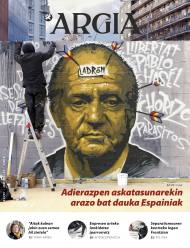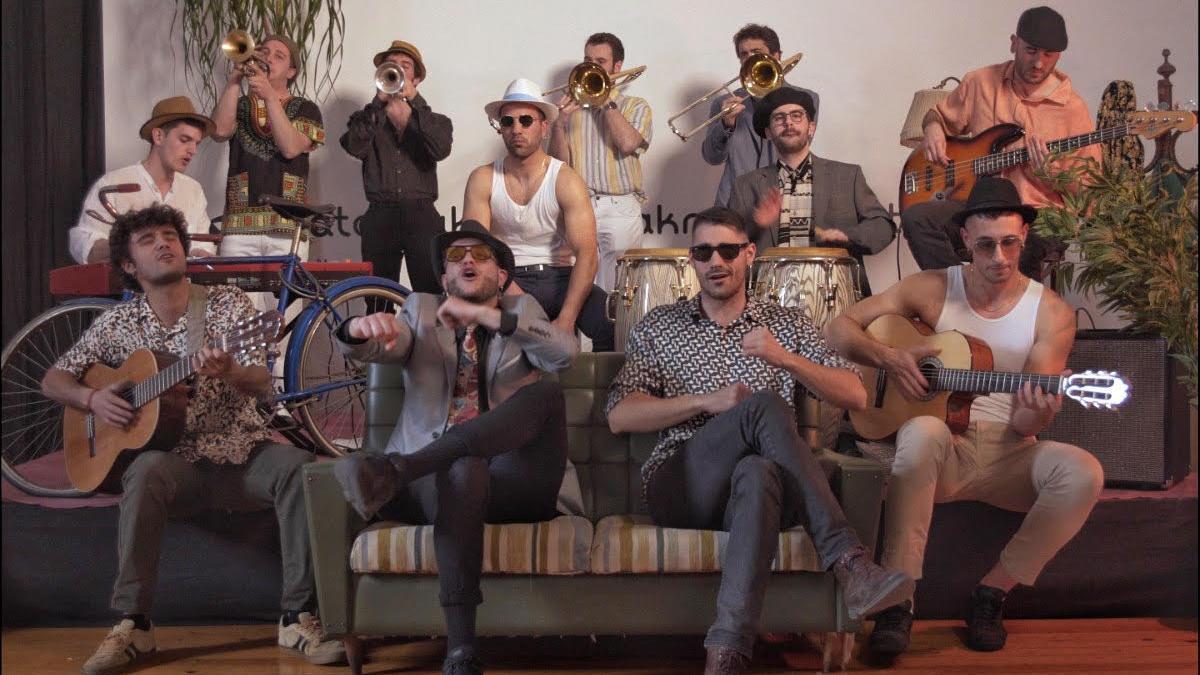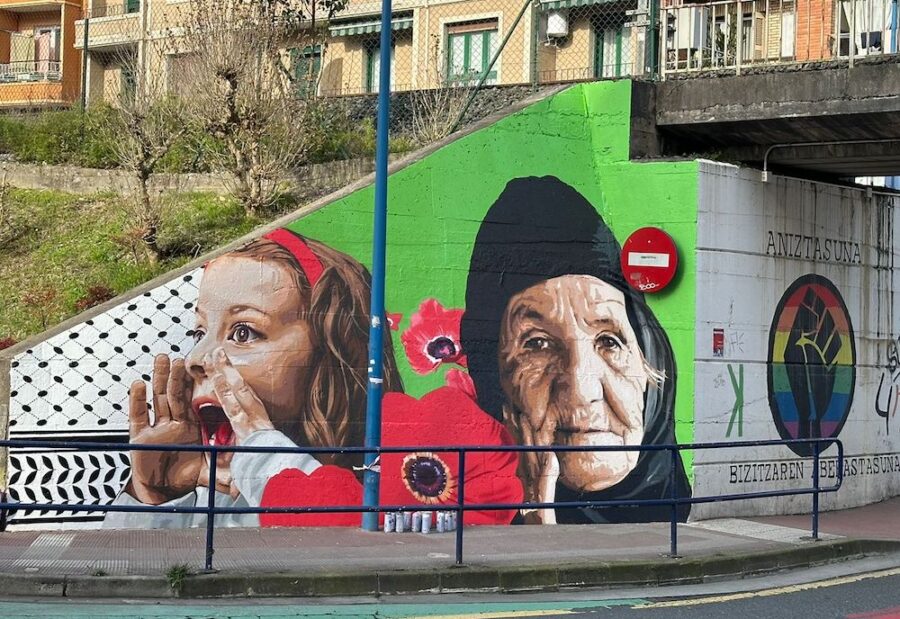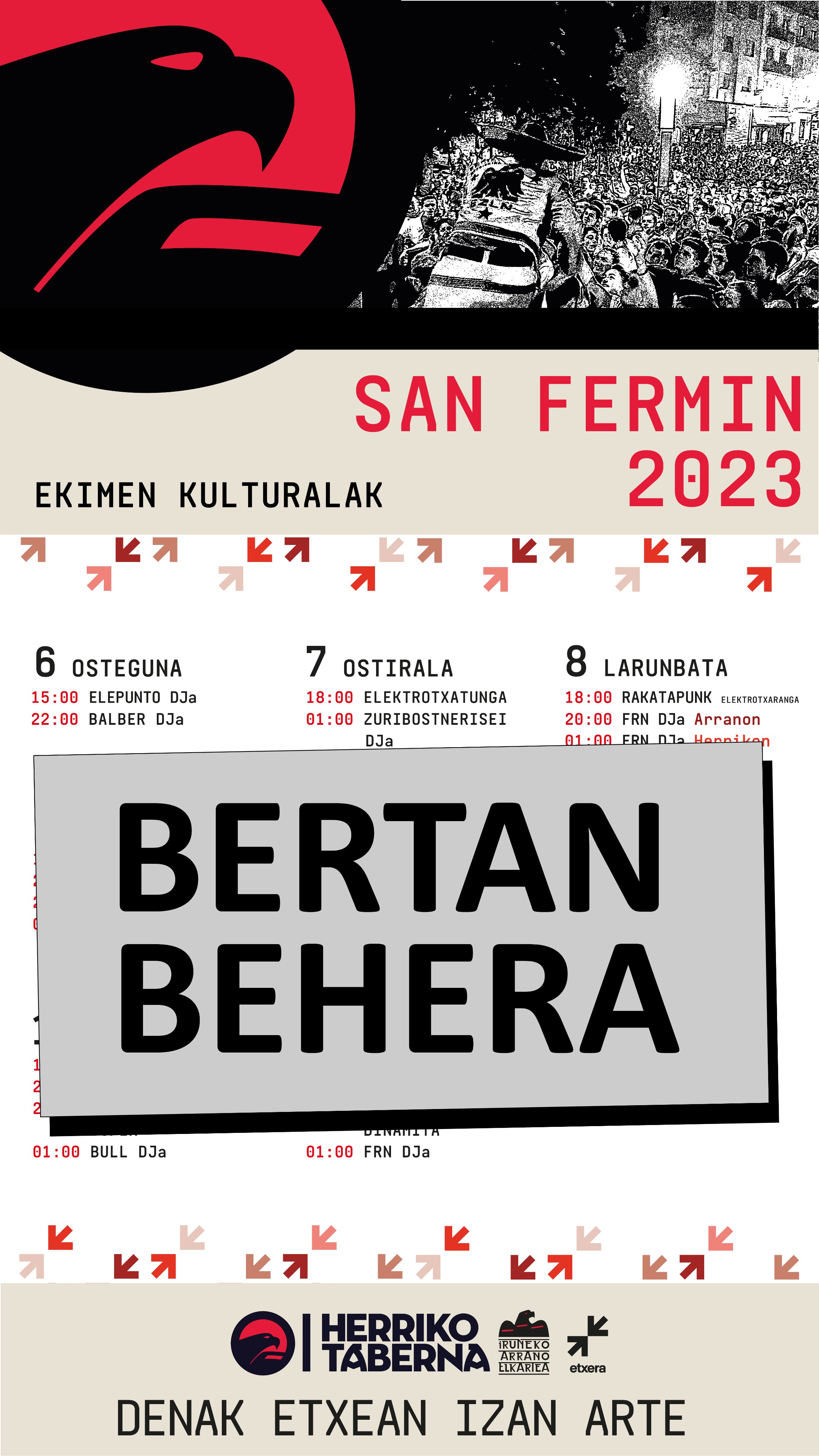Freedom of creativity in the Spanish State
- Pablo Hasel, who has recently been incarcerated, has analyzed with jurists, artists and human rights organizations the influence that the strengthening of the Spanish Penal Code has on music and other disciplines. Reporting in Catalan in this link.
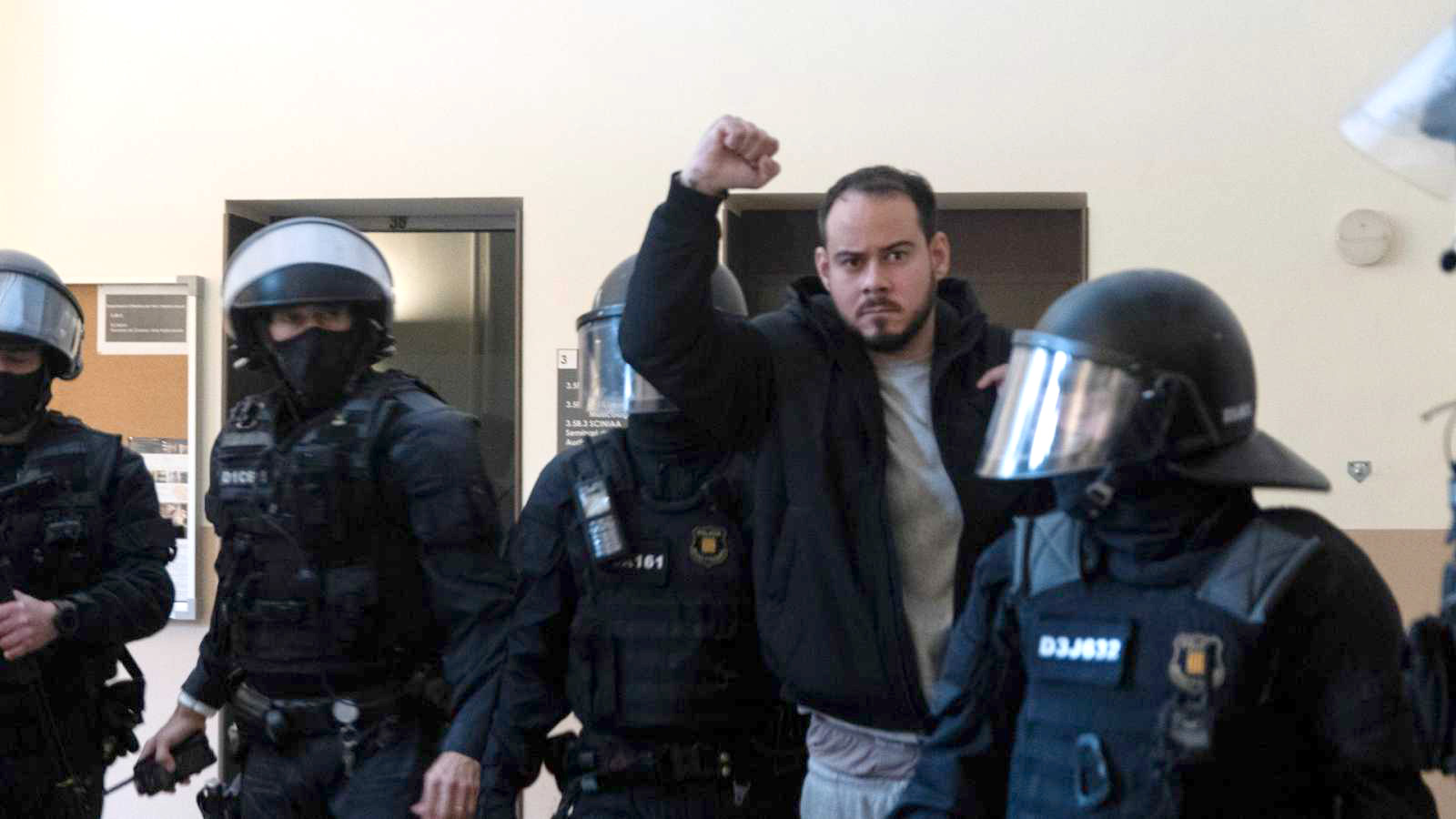
The Haséle ruling is absolutely disproportionate and raises a number of serious questions to Spanish society about its obsolete relationship with the monarchy. Criticizing God, the king or any other leader is an indispensable condition in a healthy democracy.” These are the words of Marita Muukkonen and Ivor Stodolsky, directors of the international organization Performers in Danger. Since Berlin and Helsinki, for over six years they have been monitoring violations of rights in the Spanish State, especially those that have grown since the implementation of the Moorish Law and the tightening of the Penal Code, in relation to crimes involving the uprising of terrorism. One of its functions is to help harassed artists flee secure exile, both from dictatorships and from formal democracies.
Refuge, exile or secrecy are not unknown words in Stodolsky's family history. 80 years ago, on September 25, 1940, the sister of her grandfather Lisa Fitt was in charge of driving Walter Benjamin de Banyuls to Portbou, from Northern Catalonia to Southern Catalonia, by foot, by the rocky mountains of Cervera de la Marenda. He was seeking to reach Benjamin, a Nazism fugitive, and to Portugal, to move to New York. The Franco authorities detected her in Portbou, locked her in the Hotel França and threatened to deport her to Berlin. The next morning, a corpse was found in the room to take his own life after he was supposedly taking a large dose of morphine.
Artists at risk have been denounced by the association, “regimes take advantage of the COVID-19 crisis to further suppress dissent and artistic freedoms. As a result, the risks of artists have increased.” Paradoxically, the case of rap singer Pablo Hashim has erupted in the full order of residence, a situation traditionally linked to dictatorial regimes. The CNN cameras, Reuters and Al-Jaze have re-collected what has happened in the Catalan streets and have talked about the Spanish State in the same direction as they did on October 1, 2017 or fall 2019, clearly pointing out “Police violence,” “violation of fundamental rights,” “imprisonment.”
.jpg)
Laura Huerga, You, calm down! (You, calm down!) One of the authors of the book and member of the Commission of Persecuted Writers of Catalonia of the club PEN, has taken a look: “A few years ago they were trying to censor the same messages and expressions. If they intended, the truth is that they now have some more legal tools: The Mordaza Law and the reform of the Penal Code have made repression more effective.”
In the Spanish State, in general, in the last five years there have been nearly 100,000 sanctions imposed as a result of the Mordaza Law, and the Penal Code has imposed on fourteen artists prison sentences, according to the international organization Freemuse, UN consultant, for the defense of artistic freedom. Hashim, Valtònyc and the twelve members of the Insurgency. They are all musicians and they accuse of extolling terrorism.
"It is very clear that law is used as an instrument of power to censor or limit non-hegemonic ends, dissent or criticism"
In addition to the legislation that allows it, penalist lawyer Laia Serra has focused on the ideological orientation of justice and considers that “it is very evident that law is used as an instrument of power to censor or limit non-hegemonic objectives, dissent or criticism. In the Spanish State, in recent years, people have been punished for crimes of expression, against religious feelings, the exaltation of terrorism and hate crimes, among others. However, traditional disputes and insults have to do with the defense of certain values.” The Mallorcan singer José Miguel Arenas, better known as Valtònyc, agrees. He is one of the fourteen dissident artists who have been convicted and in 2018 he had to exile Belgium in order not to remain locked for three and a half years: “If in Spain there is freedom of expression, what there is is no ideological freedom. [Carles] It can threaten Puigdemont, fuse a puppet with his face, say that he would kill 26 million reds or that Catalonia would have to be bombed... Quiet estate, nothing will happen to you. Therefore, freedom of expression is only for those who share the ideology of judges.”
That is why Serra believes that borders should not only be set by a legal framework, or by a judicial consensus, but by a “social debate raised from a democratic perspective”. It goes like this. “Each society, taking into account its values, its history and peculiarities, should agree on where those limits should be placed. And in the Spanish State this debate has not been done, so putting limits is in the hands of the judges, in relation to the current conservative values and the defense of the strata of power and the status quo”.
International covenants not complied with
“Spain is repeatedly violating article 19 of the International Covenant on Civil and Political Rights [approved by the United Nations General Assembly], which should reform many articles in the Penal Code,” says Thais Bonilla Novact member and author of the comprehensive report prepared by the Defender Whoever Defends platform and the Catalan Institute for Human Rights. In the document, only one of the ten recommendations has been applied to the Spanish authorities, paragraph 9, and with two years of delay: that riot police bring a reminder and visible number to view. This issue has also been placed in the helmet and uniform by Esquadra Mosso [and the Ertzainas], although some scopes have concealed it irregularly with protective clothing.
The departure of the Spanish authorities has been reiterated by the European courts. Bonilla stressed that “the European Court of Human Rights has disauthorised the Spanish State for punishing messages of tweets or social networks, as in the case of Agustín Toranzo Gómez, who was sentenced for torture by two policemen, or for insults to the monarchy, saying to Spain that he should not be in the Penal Code”. However, “the European Court of Human Rights is always late and the lives of the people affected are already being punished,” Bonilla regrets. “The domestic courts of each country need to function.”
.jpg)
For years, Amnesty International, together with other institutions in defence of human rights, has been calling for the reform of the Spanish Penal Code to join international human rights standards. “Change should only go towards punishing statements that directly drive violence. No one can be prosecuted for expressing or singing through social media something that someone finds unpleasant, scandalous or offensive,” says Dani Vilaro, a member of AI Catalonia.
Haséli is accused of alarming terrorism and of offending the monarchy, issues under the supervision of the international magnifying glass. Since ETA left arms in 2011, the penalties imposed under Article 578, which is the exaltation of terrorism, have multiplied. It is a good example for Laia Serra, which shows that the Spanish judiciary does not take into account key elements at international level. It refers to the intentionality of Article 578 and its context, as Strasbourg feels it is “key to interpretation”. “The context has changed and, therefore, the risk of these speeches has diminished, but judges do not take it into account,” the lawyer added.
At the same time, the European Court of Human Rights has on three occasions condemned the Spanish State for the application of the offence of insults against the monarchy provided for in Article 491. For Vilaró, it is essential to insult public figures or delete any article that prohibits saying anything about them: “Just because they are public figures, European legislation says they have to accept much more criticism than the rest of the citizens.”
Censorship and self-care
“The kidnapping of magazines, books and publications, tweets and songs is a worrying interference in the area of individual and creative freedom.” The graphic designer Roc Blackblock knows what it is about: The former King of Spain Juan Carlos I.aren drew a mural with his face under the motto “The Thief” and was censored by the Municipal Guard of Barcelona. After his reconstruction, two weeks later, Felipe VI.aren, leader of Franco and the current Spanish state, added faces on both sides.
The famous muralist warns that self-censorship is gradually being introduced into the art world: “It appears more and more subtly, it may not be conscious. Every creative person constantly reflects on how he would receive a judgment, an opinion, a controversy, and how he could close his doors.” The precariousness living in the art world, added Roc Blackblock, worsens the situation: “Most of the time it is decided to adapt the speeches so as not to exceed some lines, not to bite the hand that gives you to eat or not to close the doors.” But he says he's done the opposite. “I’ve always thought I’d rather position myself clearly and stay without taking charge of some clients or orders, because that brings me closer to the people closest to my way of thinking.”
.jpg)
The spokesperson for the Union of Activists Musicians of Catalonia, Pep Tarradas, places the case of Pablo Hasélen the “sociopolitical context of repression that has been accentuated in recent years”. It says that when the basic pillars of the state are touched, it is known that fundamental rights are not respected. He stresses that the imprisonment of the rap singer from Lleida is not an isolated case, “César Strawberry was convicted, Valtònyc is in exile, twelve singers from La Insurgencia were sentenced to prison for the case of Cassandra Vera [by birds on White Carrero]... We are living a true crusade against freedom of expression.” In the field of music, in addition to the lyrics of songs, concerts have also been censored for political reasons. For Tarradas it is very important No Callarem! the existence of movements as a platform (created in March 2017), “we do not fall into self-care”.
In his 2019 report, Freemus warns that the Spanish state leads the censorship ranking, ahead of Iran and Turkey. “The Spanish State is responsible for 31% of the cases in which anti-terrorist measures against the freedom of artistic expression have been unfairly used. Artists should be able to criticize, provoke and present controversial works that reflect on all aspects of humanity, without being threatened by the courts”, state from the headquarters of Artists at Risk in Berlin, and confirm their willingness to help the creators of the Spanish state to find a safe exile. From Belgium, Valtònyc has recognized that the fruitful threat: “There are many songs that are not going to be written, the poems that are not going to be sent, the plays that are not going to be represented. Many musicians have told me that they would like to make songs against the Bourbons, but that they fear the consequences. And that's very sad."
.jpg)
.jpg)
.jpg)
.jpg)










